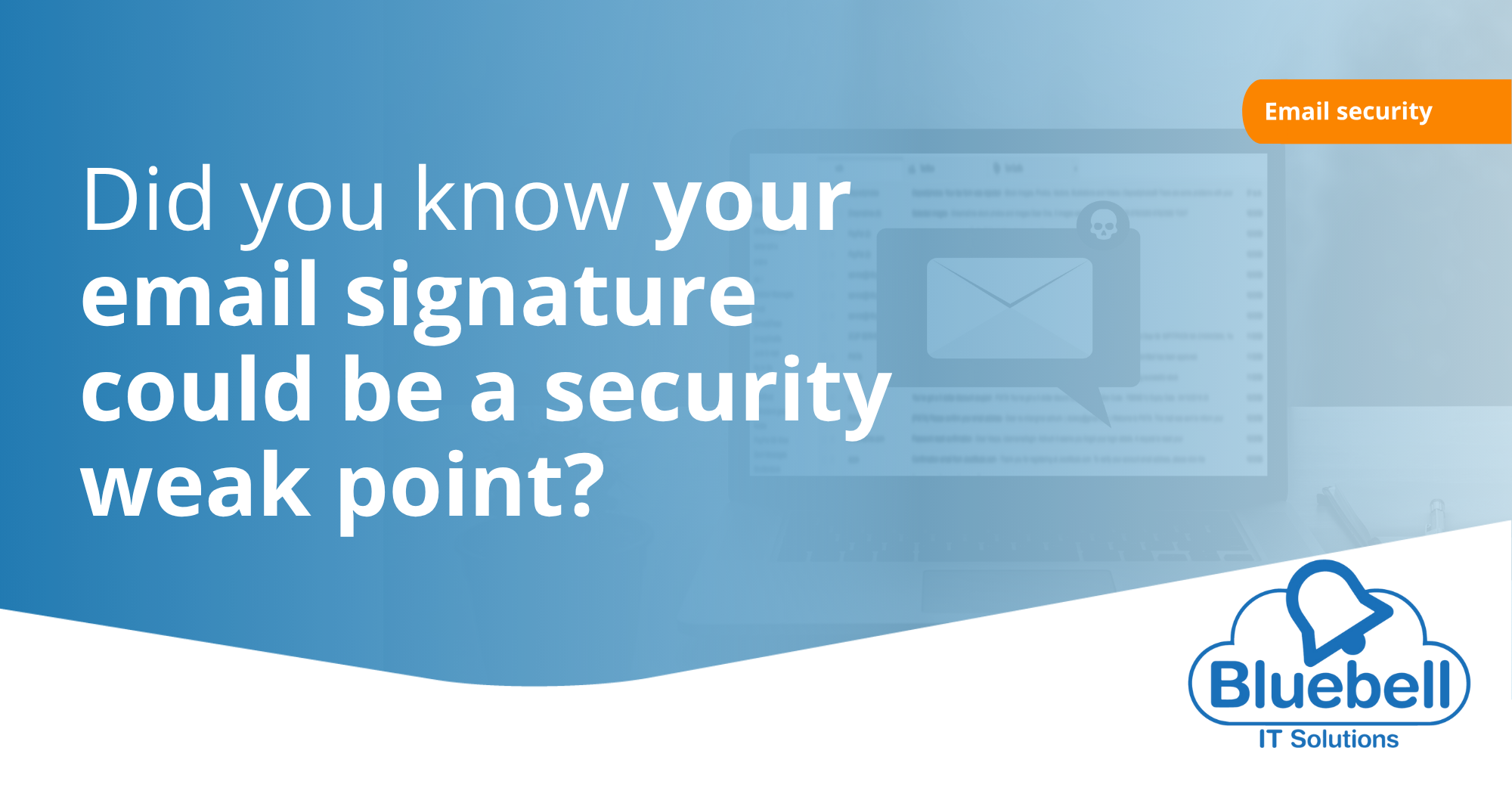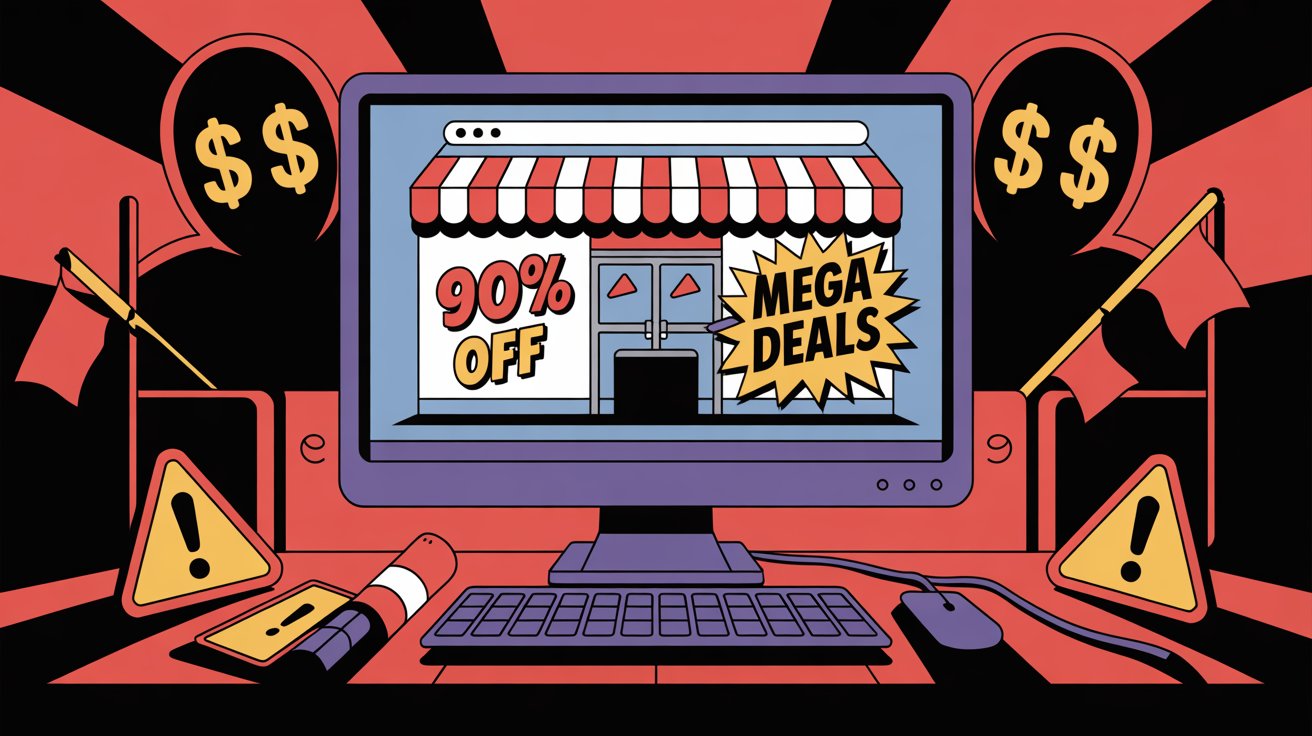Published on 12 November 2025

Black Friday is famous for massive discounts and flash sales, but it’s also a prime opportunity for online scammers. While your team is busy trying to grab the best deals, cybercriminals are equally busy setting traps. Fake websites, phishing emails, and counterfeit ads appear everywhere, designed to trick employees into handing over money or sensitive business information. Here’s how to protect your organisation.
Counterfeit websites are one of the most common scams. These sites look professional, display brand logos, and even have fake customer reviews. Their goal is simple: take payment details and never deliver the goods.
Check the web address carefully. Legitimate retailers use https:// (with the “s” for “secure”) and display a padlock symbol in the address bar. If a site only shows http://, it’s not encrypted.
Inspect the domain name. Scammers often create addresses that look almost identical to the real thing. A single letter difference, like amaz0n.co.uk instead of amazon.co.uk, is a red flag.
Be wary of pop-up shops. If a site appears out of nowhere with unbelievable discounts and no visible contact details, it’s likely fake. Criminals increasingly use AI tools to generate entire fake shops complete with realistic product photos and fabricated reviews (Castro, TechRadar, 2024).
Encourage staff to type the retailer’s name directly into their browser or use saved bookmarks instead of clicking links in social media posts or emails. If in doubt, search the company’s name followed by “scam” or “reviews”.
Phishing attacks surge around Black Friday. Scammers send emails or texts that appear to come from well-known retailers or delivery companies, claiming there’s an issue with an order or offering exclusive deals that expire in minutes. These messages are designed to make people act quickly without thinking.
Clicking the link often takes employees to a fake login page that steals credentials, or it may install malware on company devices. Similar tactics now appear across social media, where scammers post fake giveaways and misleading adverts that look entirely genuine (Abdul, How to Geek, 2024).
Always check the sender’s address. Fraudulent emails often come from odd-looking addresses, such as delivery@amazn-sales.co.uk.
Avoid clicking links or downloading attachments unless you’re certain the message is genuine. Look for poor grammar or spelling errors. Professional companies have quality control; scammers often don’t.
Go directly to the retailer’s website. If staff receive a message about an order, they should open their browser and log into their account manually rather than using a link. Legitimate companies will never ask for personal details or payment confirmations through email or text.
Payment methods matter, especially when employees are making purchases on company accounts or devices.
Use credit cards rather than debit cards. Credit cards provide better protection under UK law, meaning businesses can often reclaim money if fraud occurs.
Avoid direct bank transfers. Once money is transferred, it’s almost impossible to recover if the seller turns out to be a scammer. Be especially cautious if a retailer asks for unusual payment methods such as gift cards or cryptocurrency, which are common red flags for scams (Castro, TechRadar, 2024).
Use digital wallets like Apple Pay, Google Pay or PayPal. These systems add extra security and prevent retailers from seeing full card details. Look for secure payment gateways. A trustworthy retailer will redirect to a secure, well-known payment processor rather than asking for card details directly on the page.
Before entering payment information, double-check that the site is encrypted and that the padlock icon is visible in the browser.
Company devices are the main line of defence against cyber threats. Outdated software is one of the easiest ways for hackers to exploit vulnerabilities and access business systems.
Update operating systems and web browsers. Updates often include security fixes that protect against known threats. Install reliable antivirus software across all company devices. Even free versions offer basic protection against malware and phishing sites.
Remind staff to avoid shopping on public Wi-Fi using company devices. Public networks aren’t secure. If employees must access business accounts on public Wi-Fi, ensure they use a VPN (Virtual Private Network) to encrypt data.
It’s wise to monitor business bank accounts and company credit card statements closely during the holiday season.
Check accounts regularly. Scammers often test stolen details with small purchases before larger ones. Enable transaction alerts. Most banks and card providers offer instant notifications when cards are used.
Report any suspicious activity immediately. Quick action increases chances of recovering lost funds and prevents further fraud that could impact business operations.
Black Friday deals are meant to grab attention, but scammers exploit urgency and temptation to catch people off guard. If something looks too good to be true, it probably is.
Before buying, take a few moments to compare prices with well-known retailers. Read customer reviews from verified sources. Check the company’s contact details and return policy. If you can’t find a physical address, phone number or proper terms and conditions, it’s a major warning sign.
Your staff are your first line of defence. Building awareness is essential.
Run regular cyber security training, especially before busy periods like Black Friday. Share examples of common scams and how to respond. Encourage a “stop and check” culture. If in doubt, employees should ask IT before acting.
Make it easy for staff to report suspicious emails or websites. The faster potential threats are flagged, the better protected your business will be.
By taking simple precautions such as verifying websites, using secure payment methods, keeping software updated, and monitoring accounts, your organisation can navigate Black Friday safely.
Cybercriminals are counting on businesses being rushed and distracted during peak shopping periods. Slow down, double-check, and when in doubt, ask for help. A few extra minutes of caution can prevent weeks of disruption later.
If your organisation needs help with safe online practices and cyber protection, contact Bluebell IT today.


© 2026 Bluebell IT Solutions - All rights reserved
SEO and Website Design by Loop Digital